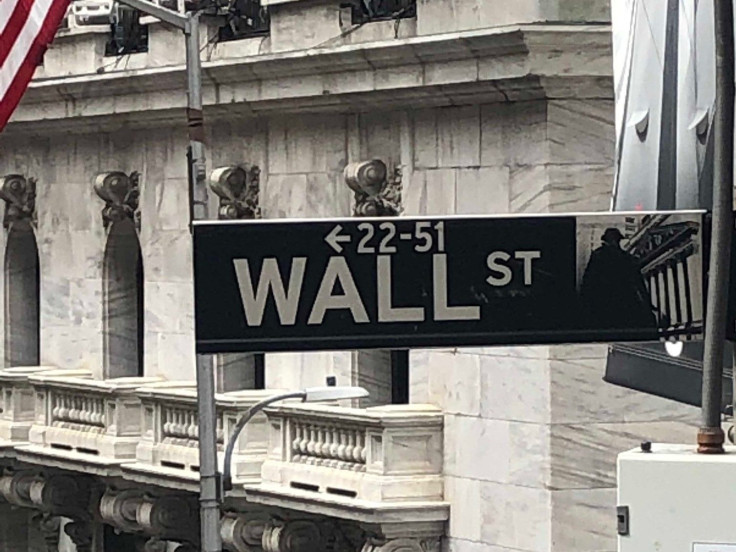Wednesday’s Stock Market Close: US Equities Fall On Downbeat Outlook by Fed Chief Jerome Powell

KEY POINTS
- Fed chief Powell warned "path ahead is both highly uncertain and subject to significant downside risks."
- U.S. producer price index fell 1.3% in April after slipping 0.2% in March
- European stocks also tumbled
U.S. stocks tumbled on on Wednesday as Fed chief Jerome Powell called for more action by the government to fight off economic collapse, as traders also worried about the feasibility of more states reopening their economies.
The Dow Jones Industrial Average dropped 516.81 points to 23,247.97, while the S&P 500 fell 50.12 points to 2,820.00 and the Nasdaq Composite Index tumbled 139.38 points to 8,863.17.
Wednesday’s volume on the New York Stock Exchange totaled 5.29 billion shares with 282 issues advancing, 16 setting new highs, and 2,695 declining, with 70 setting new lows .
Active movers were led by General Electric Co. (GE), Bank of America Corp. (BAC) and Ford Motor Co. (F).
Federal Reserve Chairman Jerome Powell said on Wednesday morning that the central bank and Congress may have to unveil more programs to save the U.S. economy.
“While the economic response has been both timely and appropriately large, it may not be the final chapter, given that the path ahead is both highly uncertain and subject to significant downside risks,” Powell said.
He added: “Additional fiscal support could be costly, but worth it if it helps avoid long-term economic damage and leaves us with a stronger recovery. This trade-off is one for our elected representatives, who wield powers of taxation and spending.”
The Labor Department said on Wednesday the U.S. producer price index fell 1.3% in April after slipping 0.2% in March.
Los Angeles County’s public health director said its stay-at-home order will likely last through July. But some other states have already gradually started to reopen some businesses.
“You have a market just waiting to see how the economy opens,” said Quincy Krosby, chief market strategist at Prudential. “One of the main catalysts will be if the economy can open up without an increase in [virus] cases.”
“The market is pretty high and the Fed has put a lot of money in here,” said David Tepper, founder of Appaloosa Management. “There’s been different misallocation of capital in the markets. Certainly you are seeing pockets of that now in the stock market. The market is by anybody’s standard pretty full.”
“Everything is dependent on the next several months and how successful businesses can re-open,” wrote Nick Raich, CEO of The Earnings Scout. “All the stimulus in the world will not offset businesses closing their doors for an extended time.”
Simon Ballard, chief economist at First Abu Dhabi Bank, warned that: “Market sentiment remains highly susceptible to headline risk and we will continue to be buffeted by the coronavirus numbers over the coming weeks. At the core of investor concerns is the lack of conviction in a self-sustaining global economic recovery.”
Overnight in Asia, markets were mixed. The Shanghai Composite edged up 0.22%; Hong Kong’s Hang Seng fell 0.27%; while Japan’s Nikkei-225 slipped 0.49%.
In Europe markets sank, as Britain’s FTSE-100 fell 1.51%, while France’s CAC-40 tumbled 2.85% and Germany’s DAX dropped 2.56%.
Crude oil futures dropped 1.05% at $25.51 per barrel, Brent crude edged up 0.45% at $29.32. Gold futures climbed 0.92%.
The euro edged down 0.31% at $1.0816 while the pound sterling slipped 0.3% at $1.2223.
The yield on the 10-year Treasury dropped 4.28% to 0.649% while yield on the 30-year Treasury fell 2.9% to 1.341%.
© Copyright IBTimes 2024. All rights reserved.





















